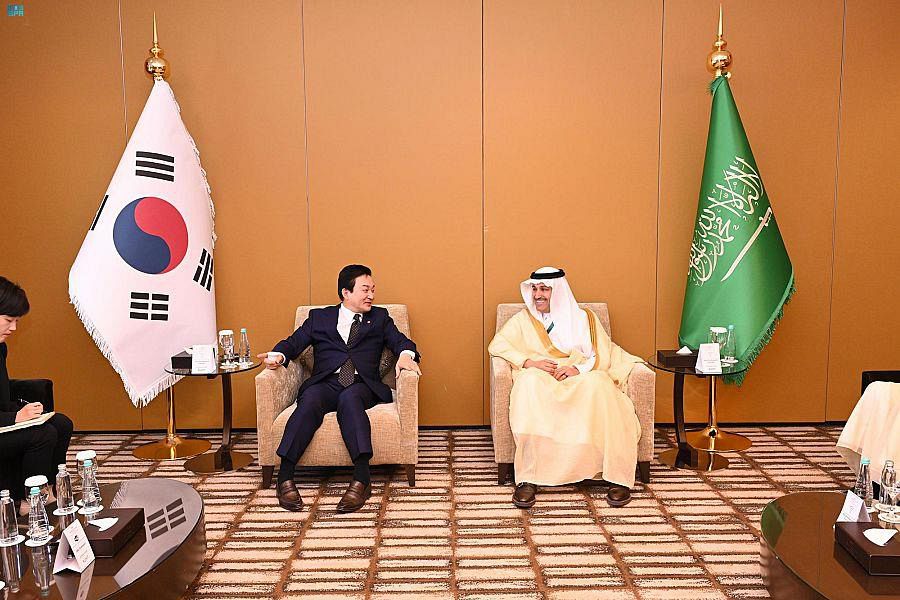
A South Korean delegation held talks on Monday with North Korean leader Kim Jong Un, an official from the South announced. This marks the first time South Korean officials have met with the young North Korean leader in person since he took power after his dictator fathers death in late 2011.
The 10-member South Korean delegation had arrived in the Pyongyang on a two-day visit on Monday.
Led by National Security Office head Chung Eui-yong, it was greeted by North Korean officials after landing in the North, said Kim Eui-kyeom, a spokesman for South Koreas presidential office.
The North Koreans at the airport included Ri Son Gwon, chairman of the Committee for the Peaceful Reunification of the Country and Kim Yong Chol, who heads the United Front Department, the North Korean office responsible for handling inter-Korean affairs. Both visited South Korea last month during the Winter Olympics.
The South Korean delegation was later invited to join Kim Jong Un at a dinner, the South Korean spokesman added.
The South Korean officials are the most senior officials from the South to meet Kim Jong Un since he took power.
"We will deliver President Moon Jae-ins wish to bring about denuclearisation of the Korean peninsula and permanent peace by extending the goodwill and better inter-Korean relations created by the Pyeongchang Winter Olympics," Chung said in South Korea before the delegations departure.
The delegation hopes to speak to North Korean officials on starting dialogue between the North and the United States as well as other countries, the delegation leader said.
Chungs team includes National Intelligence Service chief Suh Hoon and Vice Unification Minister Chun Hae-sung.
The delegation is expected to take part in another meeting set for early Tuesday, said a South Korean official who declined to be identified.
The government hopes the visit will create "a positive atmosphere", Unification Ministry spokesman Baik Tae-hyun told a regular briefing.
Chung and Suh are due to fly to Washington later in the week to brief US officials on their discussions in the North.
Thawing relations between the Korean neighbors have prompted speculation about direct talks between Washington and Pyongyang after months of tension and exchanges of bellicose insults between Trump and Kim Jong Un fueled fears of war.
Both North Korea and the United States have expressed a willingness to talk, but US President Donald Trump demands the North first gives up its nuclear weapons program.
The North, which has vowed never to give up its nuclear deterrent against what it sees as US hostility, says it will not sit down to talks under preconditions.
Reclusive North Korea, which has made no secret of its pursuit of a nuclear-tipped missile capable of reaching the mainland United States in defiance of UN Security Council resolutions, is also concerned about a joint US-South Korea military exercise, which it sees as preparation for war.
South Korean officials have said the drill will start next month as planned, after being postponed for the Winter Olympics held last month in South Korea.
North Korea has not carried out any weapons tests since late November, when it tested its largest intercontinental ballistic missile. Inter-Korean talks began after Kim Jong Un said in his New Years address that he wanted to engage the South.
China, North Koreas closest thing to an ally, applauded the South Korean delegation’s visit to Pyongyang.
"We believe it is a good thing, and look forward to a positive outcome of the meeting," foreign ministry spokesman Geng Shuang said at a regularly scheduled news conference Monday.
China has long called for a resumption of talks between North Korea and other countries embroiled in tensions over its nuclear and missile programs.
China has signed on to tough new United Nations economic sanctions against North Korea, but says those measures should be carefully targeted and serve only as an inducement for negotiations.
"We hope all sides will bear in mind the larger picture of peninsular peace and stability ... and make joint efforts not only for better ties between the North and South but for the early accomplishment of denuclearization and lasting peace and stability on the peninsula," Geng said.












